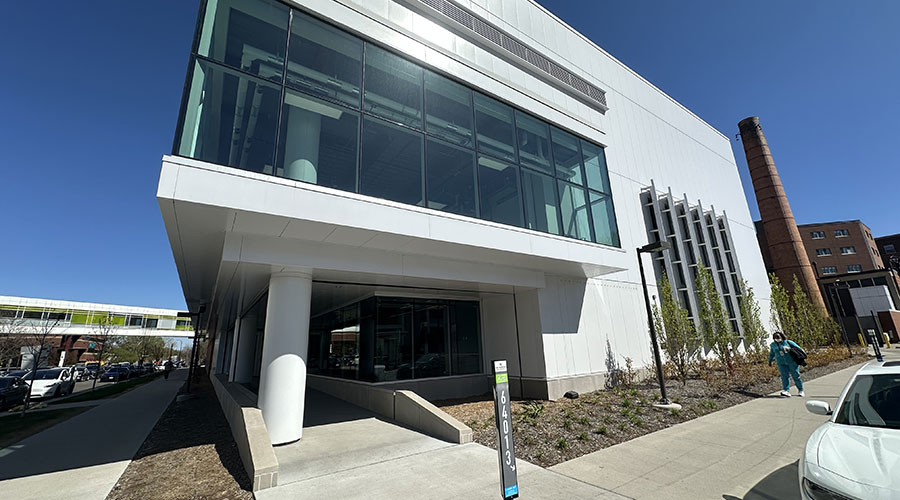Continuing Education: Curriculum for Maintenance, Engineering Managers
OTHER PARTS OF THIS ARTICLEPt. 1: This Page
In recent months, many discussions have surfaced on various maintenance, engineering, and facility management blogs regarding the appropriate educational content for maintenance and engineering management curriculums.
While traveling nationally and internationally as a consultant and teacher in the facility management profession, I have witnessed a trend: fewer engineers entering the profession and more maintenance managers rising through the ranks. As with any emerging trend, this one has pros and cons.
The pros include the fact that many maintenance technicians now have a better opportunity for promotion, as well as greater opportunities to manage and lead a department.
As for the cons, here is the issue: Many of these new and future managers are missing essential skills that would help them fulfill their potential throughout their careers.
I am not saying engineers are the perfect leaders and managers — on the contrary, as a matter of fact. Although engineers might have the technical skills in their repertoire, they most often lack the leadership, management, and business skills they need to be successful as managers.
The bottom line: Whether you are an up-through-the-ranks manager or a degreed engineer, you must have exposure to and experience in a common core of knowledge — a curriculum — essential for facilities maintenance and engineering management.
Lack of Agreement
What information and experience comprise this curriculum future managers should master? If you conduct a little research of existing offerings, you will find a variety of subject matter, content and courses in specific areas. But you likely will not find an all-inclusive program. Individual programs provide specific, valuable information, but none offer a curriculum that is in-depth and broad enough to be considered all-encompassing.
Complicating the issue is the lack of differentiation by many of these programs between manufacturing facilities and commercial and institutional buildings. To make things simple, let's focus on the training and education of new and prospective managers in commercial and institutional facilities.
My Core Curriculum
I believe new and future managers need to master a core group of subjects to succeed as a facility maintenance and engineering professional. My proposed curriculum:
Asset management. The curriculum focuses on: capital-budget planning; maintenance management; work-order planning and scheduling; preventive and predictive maintenance; and performance measures and key performance indicators.
Leadership and management. The curriculum focuses on: customer service; time management; meeting management; skills to manage and work with the boss; report writing; developing presentations; and follow-up and accountability skills.
Organization. The curriculum focuses on: structuring daily, weekly, and monthly meetings; developing command and control; dispatching work; controlling workflow; and delegating authority.
Procurement and supplies. The curriculum focuses on: setting up supply rooms; understanding and managing parts flow; developing purchase-order systems; and controlling costs and purchasing.
Personnel. The curriculum focuses on: hiring practices; coaching and counseling; discipline; accountability; and motivation skills.
Project management. The curriculum focuses on: scopes and statements of work; bid processes; contract processes; award processes; identifying deliverables; vendor management; follow-up and schedule management; and Gantt charts.
Training. The curriculum focuses on: management training and the development of training programs; fundamentals of teaching employees; technical-skills programs; and pay-for-skill programs.
Outsourcing and out-tasking. The curriculum focuses on: outsourcing fundamentals; risk-reward programs; types of contracts; customer-service problem solving and customer-service skills; performance measures; and contract reviews and renewals.
Negotiation skills. The curriculum focuses on: learning to negotiate contracts, purchase orders, and services; selling your ideas; and navigating labor negotiations.
Safety. The curriculum focuses on: creating a safety culture; safety-program structure; life-safety lessons; and performance measures.
Energy management. The curriculum focuses on: green building rating systems, such as the U.S. Green Building Council's Leadership in Energy and Environmental Design program; sustainability; energy-conservation measures; and energy-management tools.
Developing managers and leaders. The curriculum focuses on: performance evaluations; analyzing performance potential; and developing long-range career plans.
My proposed curriculum is extensive and contains quite a few topics, but it is important for up-and-coming maintenance and engineering managers to have an in-depth understanding of each of these areas to lead an effective maintenance operation, no matter how small or large the organization is. Unfortunately, I do not think a curriculum program such as this exists.
Making It Happen
Let's assume the topics in my curriculum are complete and accurate. The next phase in outlining a path for new and future managers starts with answering these questions:
- How do we teach the curriculum?
- What are the base qualifications a student needs to enroll in the program?
- How long should it take to complete this type of extensive training? Is it a two-, three-, or four-year program?
- How do we combine the book knowledge and methods learned in classrooms with hands-on experience? There has to be a component in place to assist these up-and-coming leaders to grow the knowledge and gain maturity through real-world exposure.
- How do we measure success?
To complete the curriculum, I envision a multi-year program. Courses would take place two or three times each year, and they would be grouped so students could build their knowledge gradually. In between sessions, instructors would assign tasks and projects that would test the students' base skills and prepare them for the next segment of courses.
Upon completing each segment of courses, students would be able to take deliverables back to their employers to show the value of both the program and the student.
Obviously, completing this curriculum is a complex process that requires discipline, vigilance, and accountability by both the student manager and the employer. A program such as this one also involves costs and risks. That said, we need to look ahead to our future well-being. The education and training of future managers is critical if organizations want to remain competitive in the world market.
A friend of mine who spent his entire career in management and personal development has a great saying related to education and training:
"What if we train our employees and they decide to leave our company? What if we don't train them and they stay with us for 30 years."
Agree? Disagree? Have something to say? We want to hear from you. Visit myfacilitiesnet.com/members/Michael-Cowley/default.aspx, and "Start a Conversation."
Michael Cowley, CPMM, is president of CE Maintenance Solutions. Cowley provides maintenance training, coaching, and consulting services to facility and manufacturing organizations nationwide, and he is a frequent speaker at national facility management conferences.
Related Topics:











